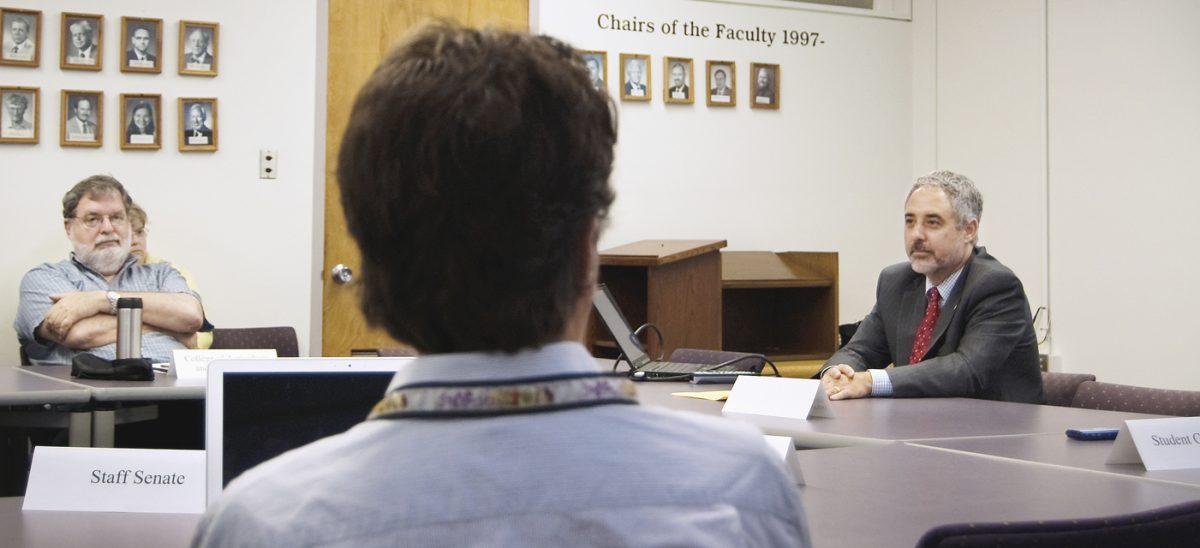The University Information Technologies Committee met Wednesday morning in the Faculty Senate chambers in D.H. Hill Library to discuss changes concerning campus e-mail systems that would affect faculty and students.
Easley controversy brings questions to IT
Vice Chancellor for Information Technology Marc Hoit explained that the latest controversy pertaining the hiring of former first lady Mary Easley has shown how out-of-date the IT department was in regards to the archiving and retaining of business emails that the University’s faculty composed and sent. University lawyers were unable to produce emails associated with Easley’s hiring for federal prosecutors two weeks ago, citing the e-mails had been deleted and could IT staff members could not recover them.
Hoit says the e-mail retention policy has been updated and Legal Affairs is reviewing it. The new policy will more accurately follow laws regarding retention and deleting of business e-mails that faculty created. Hoit said it was important for faculty to make their business e-mails accessible so the University can better defend its staff in legal matters.
Some changes that will be made in the retention policy would implement a single system that archives all the University’s faculty mail with the exception of spam. According to Hoit, the goal of the new policy is for every piece of mail that passes through the University’s servers to become archived.
“There is no one solution that will make everybody happy …we are trying to pick a solution we can work with that makes the most people happy,” Hoit said. “These changes are due to the high amount of requests for files involving the University’s legal issues.”
Hoit also spoke on how beneficial it could be if the three Triangle universities shared a mail server to archive e-mails. Hoit explained that outsourcing the duty of archiving university mail is costly.
“Combining the three universities’ e-mail into one archive would be much more cost-effective,” Hoit said.
The committee decided student e-mail would not need to be archived unless the student works for the University and conducts University business with his or her email address. The new policy on e-mail retention is expected to be in affect by December.
Gmail pilot will be available this fall
The UITC also continued talks about the University’s eventual outsourcing of e-mail to Google. OIT Director of Outreach, Communications and Consulting Stan North Martin said the University is in talks with Google to provide Gmail and Google applications to students. The deal would provide students with the ability to use Google applications for school work. Students may also be able to use Gmail addresses as their school addresses. With continued negotiations, students could have a example pilot to work with in the fall before a full migration to the system, which would take place in spring 2010.
Students like Rohil Shah, a senior in natural resources management, and Katie Rios, a senior in communication, said they already use Gmail more than they use the University’s e-mail system.
“It’s a really good idea,” Rios said of the proposed move. “I use my Gmail account way more than my school account.”
Shah said beyond using Google’s mail service, she would be interested in using the applications the company offers for school work.
“I would love to be able to see Google applications integrated into our network here at State,” she said.








